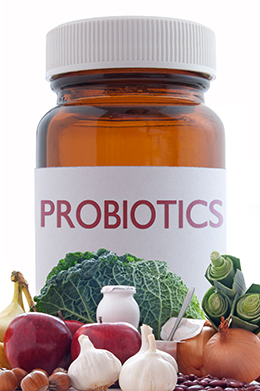Over the past several years, the U.S. market for probiotics has emerged as one of the fastest growing consumer healthcare markets, consistently achieving double-digit sales growth. In 2015, according to our recently published Nonprescription Drugs USA and Natural OTCs: Impact of Non-drug Products on the U.S. OTC Market studies, the total market for probiotics is estimated at over $530 million, up above 15% since 2014. It is not uncommon for the category and some brands to achieve sales growth of 15% to 25% on a year-over-year basis. These high growth rates have been sustained by increased consumer awareness and more chronic use as consumers see the value in taking probiotics to increase their immunity rather than just help treat episodic digestive ailments. Furthermore, compared to more traditional digestive products, probiotics have relatively high retail price points, which helps drive overall sales for this market segment.
Probiotics appeal to a broad consumer group seeking more natural solutions to health problems. Probiotics are a natural biological way—as opposed to a pharmacological way—for consumers to proactively increase digestive health, strengthen immunity, and balance healthy bacteria in the digestive system, in addition to providing temporary episodic symptomatic relief of occasional gastrointestinal problems. Furthermore, probiotics provide a wide spectrum of digestive health benefits beyond a laxative effect, including relief from diarrhea, gas, bloating, constipation, and abdominal discomfort and urgency.
Probiotics come in shelf-stable forms, as well as forms that require refrigeration. Since bacteria die once a product is manufactured, refrigeration ensures that the amount of bacteria remains high. Refrigerated products also have shorter “use by” dates. However, refrigerated probiotics typically contain more strains and live bacteria than most shelf-stable products and are significantly more expensive, with many products retailing for between $25.00 and $50.00. Refrigerated probiotics are found in specialty stores, such as Whole Foods, natural food stores, and specialty pharmacies, including wellness chains, such as Pharmaca.
Delivery systems are also a way to differentiate products, and while a majority of products on the market are tablets or caplets, new delivery systems, such as chews, liquids, gummies, and fizzy powders, are becoming more popular and attracting new users to the category.
Beside probiotics, consumers are also showing more interest in prebiotics, which can help promote probiotic colonization and growth in the digestive system. Probiotics, which contain live bacteria, introduce good bacteria into the digestive system. Prebiotics are nondigestible carbohydrates that act as food for probiotics and help the good bacteria contained in probiotics grow.
In-depth analysis of this quickly growing market will be provided in our upcoming Digestive Immunity and Probiotics: U.S. Market Analysis and Opportunities report, which will provide insights on prebiotics and probiotics products sold through all U.S. retail outlets, along with market trends, sales and growth, new products and claims, competition, marketing activities, forecasts, and detailed profiles of major market players.

